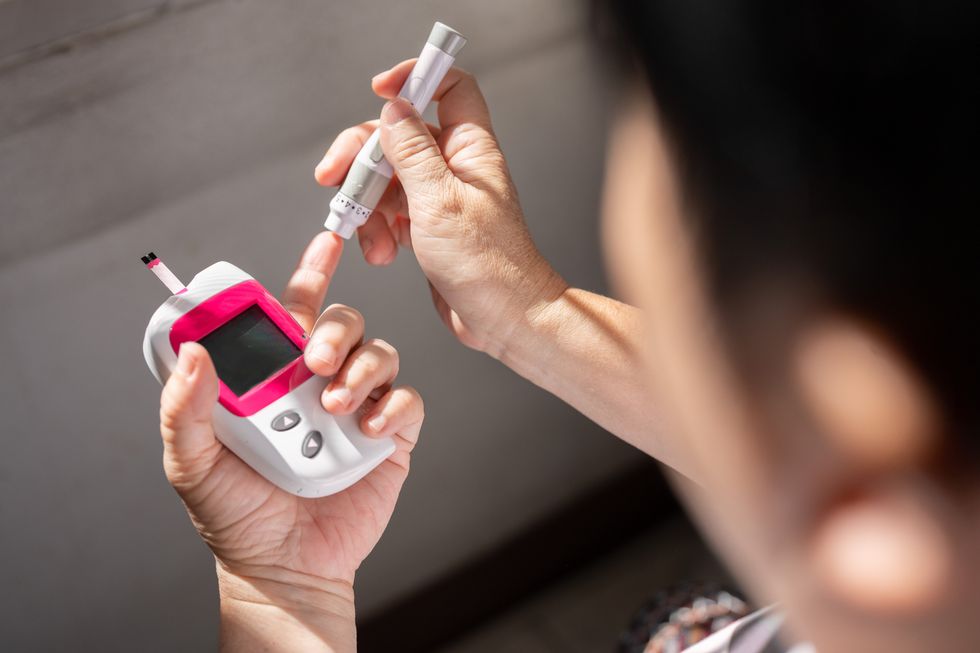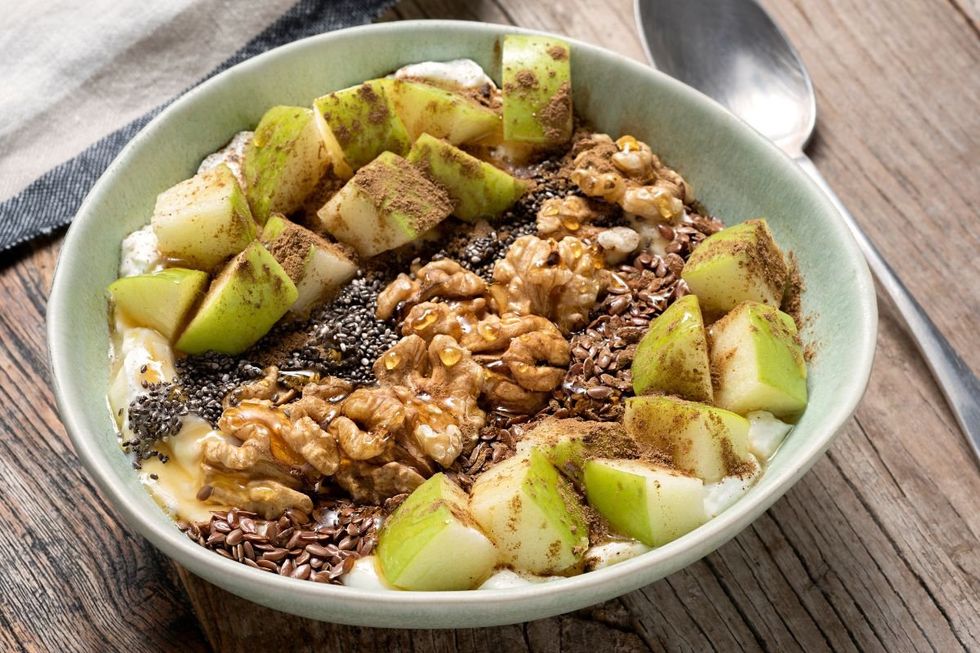Type 2 diabetes: Dietitian shares how to build the perfect breakfast for 'stable blood sugar levels'

Several breakfast ingredients stand out for their blood sugar benefits
Don't Miss
Most Read
Latest
Managing blood sugar throughout the day starts with what you put on your breakfast plate, as the right combination of ingredients promotes sustained energy release from morning through afternoon.
According to Lumen's registered dietician, Brea Lofton, certain ingredients stand out when it comes to creating the perfect morning meals.
"Starting the day with a balanced breakfast rich in protein, fibre, and healthy fats is key," Lofton explained.
Conversely, breakfasts loaded with sugar and refined carbohydrates can send glucose soaring rapidly, she warned.
TRENDING
Stories
Videos
Your Say

Choosing the right ingredients can slow digestion and keep blood sugar steady
|GETTY
Instead, she advised choosing ingredients that deliver a gentler, more sustained energy release, such as eggs, which deliver protein and beneficial fats that help prevent glucose spikes while keeping you satisfied.
Steel-cut or rolled oats contain beta-glucan, a soluble fibre that slows down how quickly your body absorbs glucose and enhances insulin sensitivity.
Greek yoghurt offers protein alongside probiotics that may benefit gut health and metabolic balance.
Both chia and flaxseeds provide fibre and omega-3 fatty acids, helping to slow digestion and keep blood sugar steady.
Low-glycaemic fruits like blueberries and raspberries bring antioxidants and fibre without causing sugar spikes.
Avocados supply monounsaturated fats that support insulin sensitivity - perfect spread on toast or blended into smoothies for a nutritionally balanced start.
While no single food works as an instant fix for high blood sugar, certain choices can help your body manage elevated levels more effectively.
Diluting one to two tablespoons of apple cider vinegar in water before meals, for example, can enhance insulin sensitivity and reduce glucose spikes after eating.
LATEST DEVELOPMENTS
Ceylon cinnamon contains compounds that may boost insulin receptor activity - simply sprinkle it on food or drinks.
Leafy vegetables like spinach and kale are rich in magnesium and fibre, supporting glucose uptake and insulin function.
A handful of almonds or walnuts can help prevent blood sugar rises when eaten with or after carbohydrate-rich meals. Green tea's polyphenols may improve glucose metabolism and metabolic health.
For immediate action after a carb-heavy meal, a quick 10 to 15-minute walk can notably reduce post-meal glucose by helping muscle cells absorb more glucose.
Evening habits should also be carefully considered, as they play a crucial role in managing blood sugar while you sleep.
Focus on light, balanced dinners featuring lean proteins like chicken, fish or tofu alongside non-starchy vegetables and healthy fats.
Heavy, carbohydrate-rich meals near bedtime can elevate glucose levels as you wind down.
If you do eat carbs with dinner, combine them with fibre and protein to prevent overnight blood sugar spikes.

Greek yoghurt offers protein alongside probiotics that may benefit gut health
|GETTY
Stop eating two to three hours before bed to let insulin levels decrease and support metabolic repair during sleep.
A gentle stroll or light stretching after dinner can boost insulin sensitivity before bed. Quality sleep matters too - aim for seven to nine hours by reducing screen time and creating a cool, dark bedroom environment.
Our Standards: The GB News Editorial Charter











